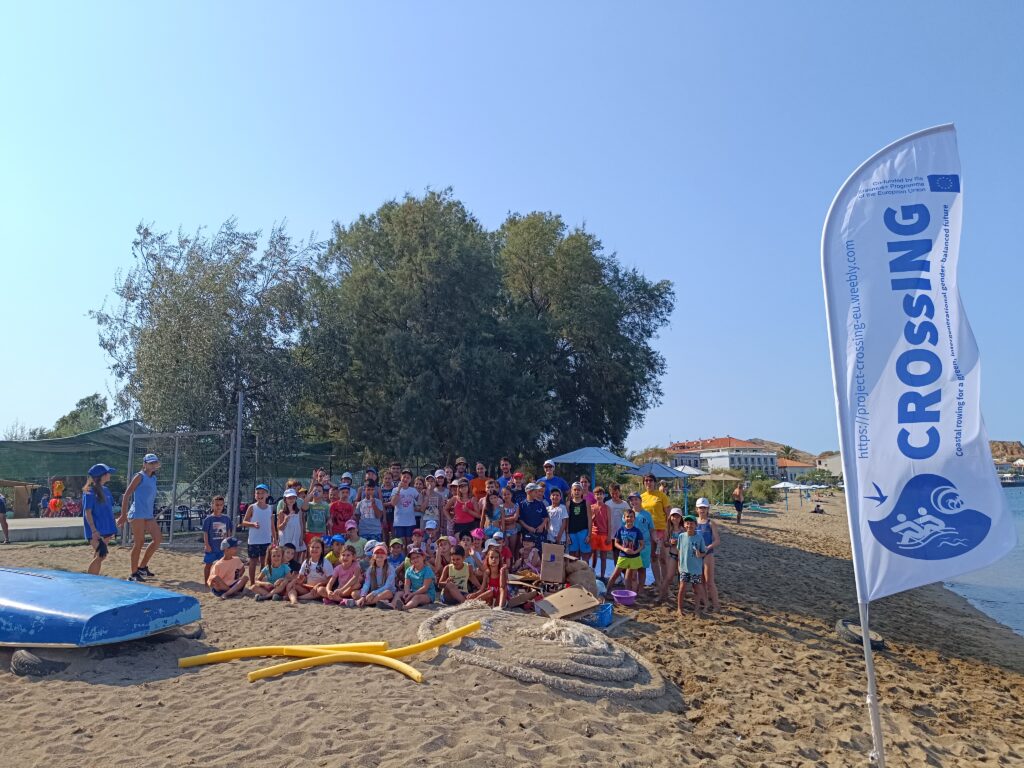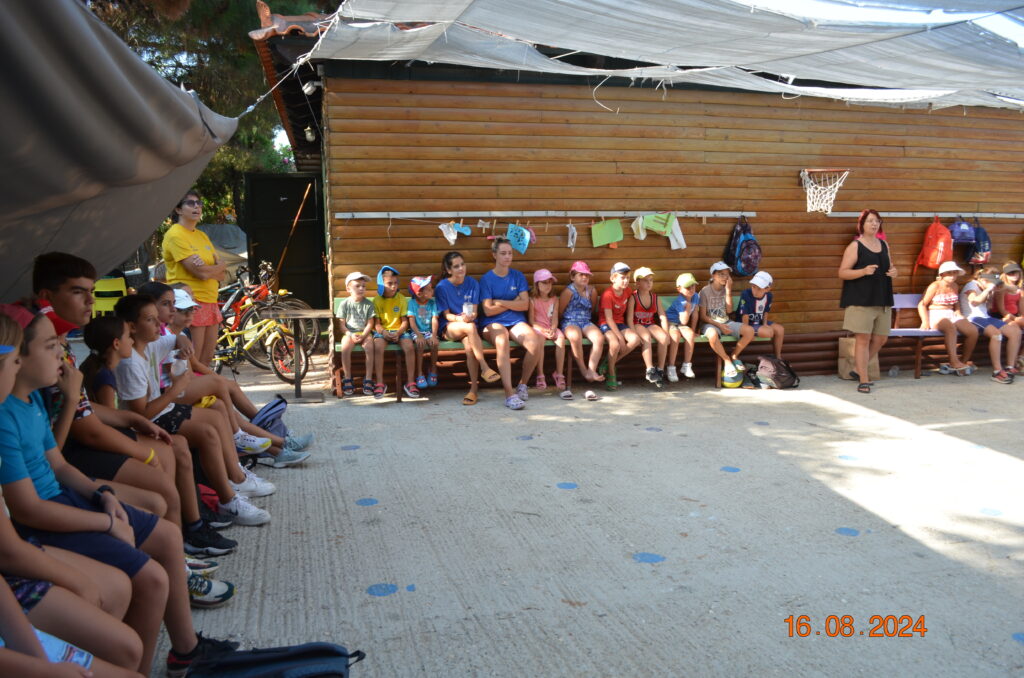21 Αυγ Web2Learn’s Citizen Science in Action Against Marine Pollution


Web2Learn’s Citizen Science in Action Against Marine Pollution
Web2Learn is pleased to have led the concept, design, implementation, and educational workshop for the recent initiative by the Nautical Club Lemnos: the adoption of Romeikos Gialos Beach on Lemnos Island, Greece.
This initiative is part of the Erasmus project CROSSING, with the Nautical Club Lemnos participating in one of the largest citizen science efforts against plastic pollution through the WWF Greece “Adopt a Beach” action.
The Project’s Objective
The primary goal is to systematically collect and analyze quantitative and qualitative data on coastal and plastic pollution. The aim is to identify and categorize waste materials, with the long-term goal of reducing and eventually eliminating plastic pollution from our environment. This effort aligns with Web2Learn’s commitment to innovative, community-driven actions that result in meaningful change.
First Action Results
During the initial action, 482 items were collected, categorized, and tagged according to standardized procedures. The detailed findings are available εδώ (in Greek). This beach adoption involves consistent monitoring and cleaning efforts throughout the year, with at least four scheduled cleanups and continuous data reporting on the WWF platform.
Engaging the Community: Educational Workshops
The first action included hands-on participation from children attending the Nautical Club’s summer school program. After the cleanup, they took part in an educational workshop designed by Mrs. Claire Fragiadaki, where they learned about the impact of plastic on the environment through videos, interactive games, and quizzes. The children brainstormed practical solutions to avoid single-use plastics and explored ways to share what they learned with others, reinforcing the program’s educational mission.
Educational Sessions Overview
- Introduction:
- Energizer game “The Little House” followed by a brief overview of the activities.
- Focus: Build engagement and teamwork.
- Adopt a Beach Video:
- An introductory video on citizen science and beach monitoring.
- Focus: Highlight the community’s role in protecting coastal areas.
- Plastic Pollution Video and Quiz:
- Watch a video on plastic pollution, followed by an interactive true/false quiz.
- Focus: Raise awareness of the environmental impact of plastics.
- Daily Plastic Use Discussion:
- View a video on annual plastic consumption (WWF Greece). Discuss daily plastic use, and distribute diaries for tracking over a week.
- Focus: Encourage reflection and habit changes to reduce plastic use.
- The Future with Plastics Video and Discussion:
- Watch a video on how the world might look in 30 years if current habits continue, followed by a discussion.
- Focus: Foster critical thinking about long-term environmental consequences.
- Super TV Show Game:
- Teams solve riddles and answer questions for points.
- Focus: Reinforce learning in a fun, competitive way.
- Conclusion:
- Recap the day’s key takeaways.
- Focus: Inspire ongoing commitment to reducing plastic waste and sharing knowledge.
Our role
This project underscores Web2Learn’s dedication to transforming innovative concepts into effective actions. By supporting citizen science initiatives, we empower communities to engage in environmental stewardship and data-driven solutions.
The fight against marine pollution is urgent. By taking steps now, we can help prevent the alarming prediction that by 2050, there could be more plastic than fish in our oceans. The collaboration between Web2Learn, Nautical Club Lemnos, and local citizens exemplifies the power of community-driven efforts in tackling global environmental challenges.
Stay tuned for more updates as we continue our regular monitoring of marine pollution throughout the year, all in the spirit of true citizen science.
Persons in charge
Κλαίρη Φραγκιαδάκη, instructional designer: design and implementation of the playful educational activities. Κατερίνα Ζούρου, citizen science compliance
Resources
Check our slides here:
- Introduction:
https://drive.google.com/file/d/1X8d3birMTYXZw4Bwqg5XEEN1rVPbDChB/view?usp=drive_link



